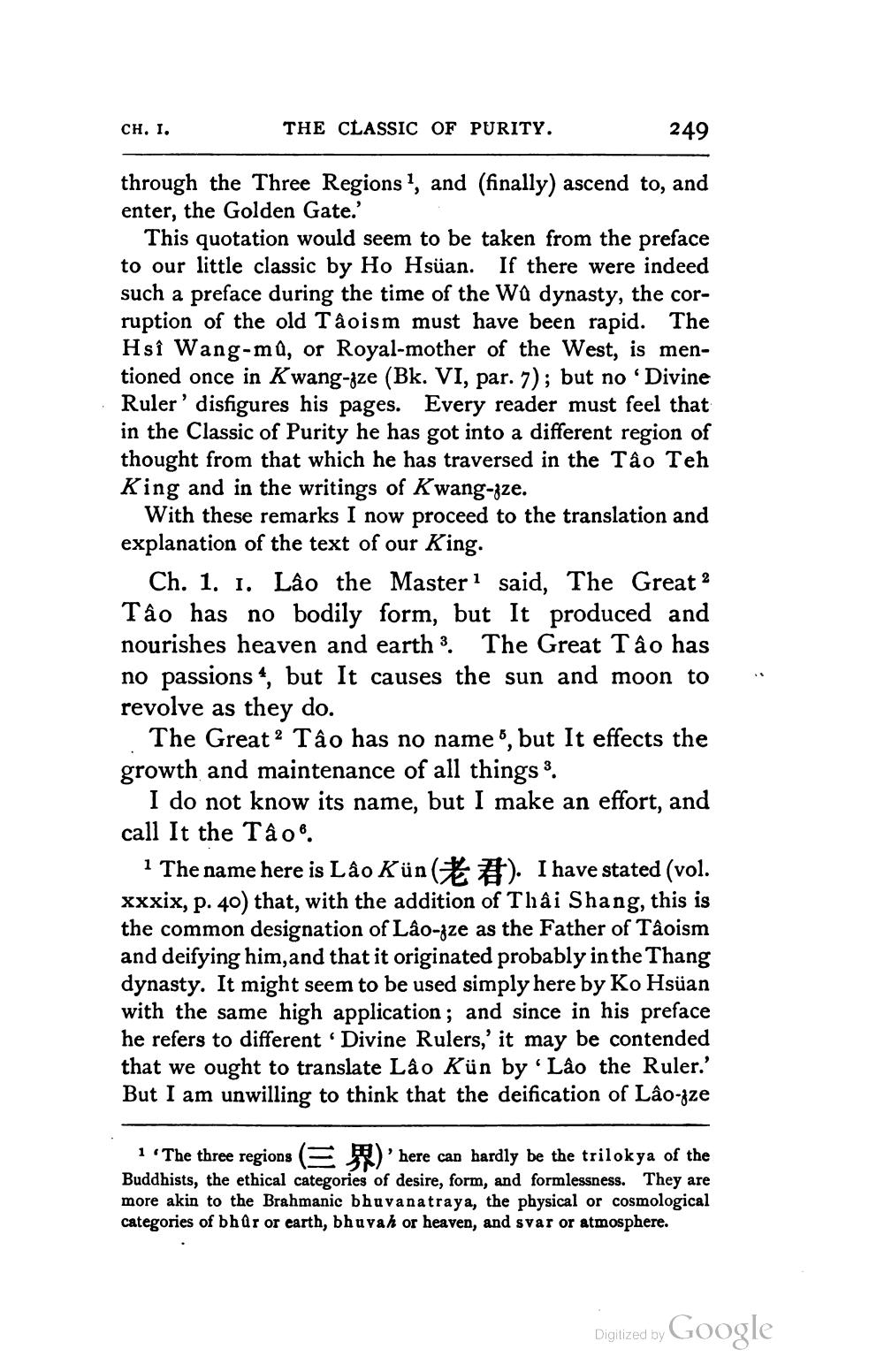________________
CH. 1.
THE CLASSIC OF PURITY.
249
through the Three Regions, and (finally) ascend to, and enter, the Golden Gate.'
This quotation would seem to be taken from the preface to our little classic by Ho Hsuan. If there were indeed such a preface during the time of the Wa dynasty, the corruption of the old Taoism must have been rapid. The Hsî Wang-ma, or Royal-mother of the West, is mentioned once in Kwang-zze (Bk. VI, par. 7); but no 'Divine Ruler' disfigures his pages. Every reader must feel that in the Classic of Purity he has got into a different region of thought from that which he has traversed in the Tâo Teh King and in the writings of Kwang-sze.
With these remarks I now proceed to the translation and explanation of the text of our King.
Ch. 1. 1. Lâo the Master 1 said, The Great ? Tâo has no bodily form, but It produced and nourishes heaven and earth 3. The Great Tâo has no passions, but It causes the sun and moon to revolve as they do.
The Great 2 Tâo has no name", but It effects the growth and maintenance of all things 3.
I do not know its name, but I make an effort, and call It the Tâ06.
1 The name here is Lâo Kün ). I have stated (vol. xxxix, p. 40) that, with the addition of Thâi Shang, this is the common designation of Lâo-zze as the Father of Taoism and deifying him,and that it originated probably in the Thang dynasty. It might seem to be used simply here by Ko Hsian with the same high application; and since in his preface he refers to different 'Divine Rulers, it may be contended that we ought to translate Lâo Kün by Lâo the Ruler.' But I am unwilling to think that the deification of Lâo-zze
1 'The three regions
'here can hardly be the trilok ya of the Buddhists, the ethical categories of desire, form, and formlessness. They are more akin to the Brahmanic bhuvanatraya, the physical or cosmological categories of bhur or earth, bhuvah or heaven, and svar or atmosphere.
Digitized by Google




